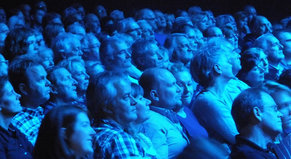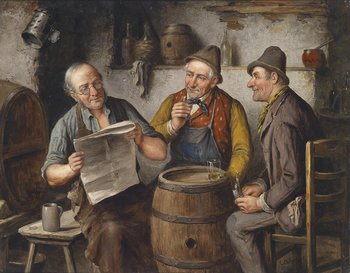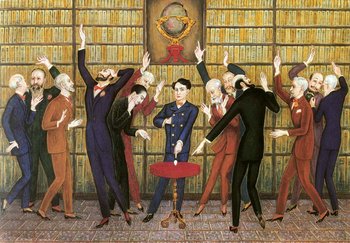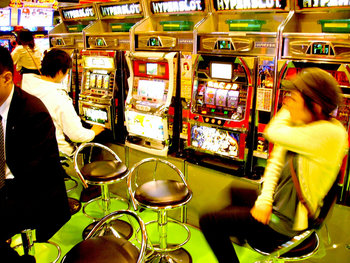Storytelling
A successful individual tells a story about the failures they faced on their path. Although the information is anecdotal, the audience finds it interesting and instructive.Word of Mouth
Coworkers talk about a new restaurant near the office and one says they tried it and that the food was mediocre and the staff were rude. The coworkers don't trust this opinion because this particular individual is often complaining about restaurants in an unreasonable way.Politics
A politician tells a story about a specific person who lost their job due to the policies of a political rival. They may ignore general employment statistics that indicate the policies created more jobs and higher wages.Rumor & Innuendo
An individual starts untrue rumors about a coworker as a passive aggressive tactic in a political or personal conflict. As the rumor spreads, each individual changes the story a little.Advertising
A commercial features a doctor who says that patients who drink a particular energy drink always seem to be healthier. Advertising that makes claims based on anecdotal evidence is often prohibited by law.Confirmation Bias
Confirmation bias is a tendency to search for information that confirms your beliefs or theories. It is usually based on anecdotal evidence. For example, a person who believes that a certain breed of dog is dangerous may search for examples where this breed attacked someone. The same person may avoid or choose to ignore general statistics, particularly if they don't confirm their biases.Cherry Picking
Cherry picking is an argument that's constructed with selective facts or examples. For example, arguing that tourists from a particular country are rude based on individual examples while ignoring all examples that concern the behavior of tourists from other nations or the behavior of locals themselves.Hypothesis Formation
The term anecdotal evidence is often used in research papers to highlight unreliable information that may be used as a starting point for rigorous investigation. For example, a medical research paper may mention the anecdotal evidence surrounding a traditional medicine as a reason for a hypothesis.Summary
Anecdotal evidence is the practice of using subjective examples to support an argument, position, decision or strategy. While anecdotal evidence can have some value it has quite a few weaknesses that depend upon what you are trying to investigate. For example, it is usually statistically insignificant and may assume cause and effect relationships that do not exist.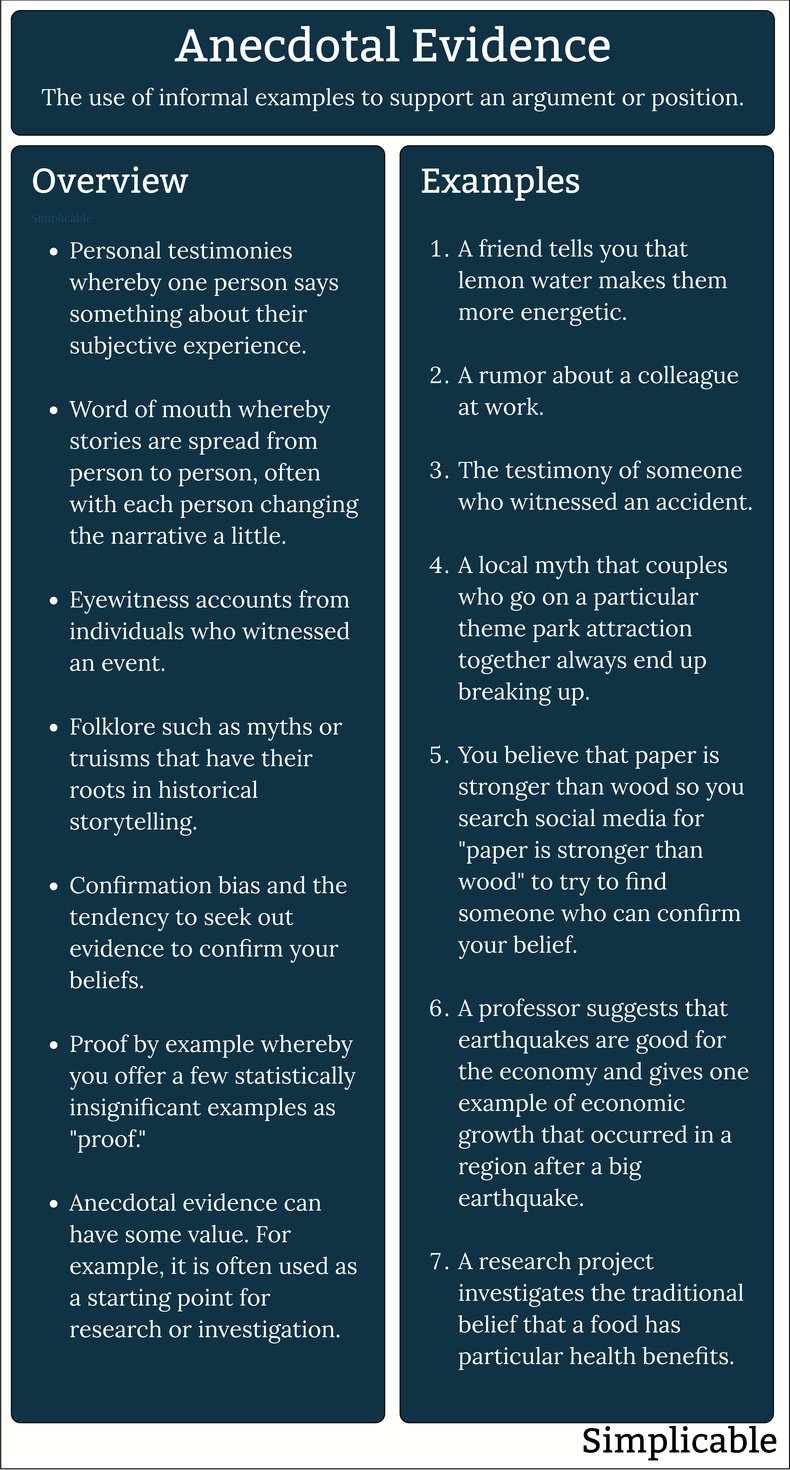
| Overview: Anecdotal Evidence | ||
Type | ||
Definition | A body of information based on accounts and narrative. | |
Related Concepts | ||



